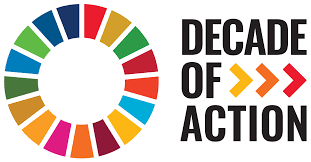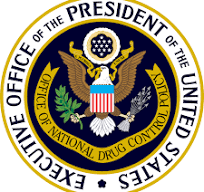alternatives to incarceration
As the first quarter of 2025 comes to an end, the ISSUP Philippine Chapter continues to strengthen its partnerships and broaden its influence across national and international platforms. The past months have been marked by crucial...
Promouvoir le Traitement comme Alternative à l’Incarcération pour les Usagers de Substances
Du 14 au 18 Octobre 2024 a eu lieu à Lomé /Hôtel concorde, un atelier de formation sur les alternatives à l’incarcération (ATI).
Organisé par le CNAD en collaboration avec ISSUP Togo, avec l'appui technique et financier de la Commission de la CEDEAO et du Colombo Plan; cet atelier a connu la participation d'une vingtaine d'acteurs multisectoriels.
ISSUP Kenya participates in PTACC African Leaders Deflection Summit
Dr Jackie Anundo ISSUP -KENYA Secretary, attended a 2-day summit hosted by the Police, Treatment and Community Collaborative (PTACC). PTACC is an organisation that seeks to strategically enhance the quantity and quality of community behavioural health and social service options through engagement in deflection and pre-arrest diversion
ECOWAS Launches “Pilot Project on Alternatives to Incarceration in West Africa for Persons with Substance Use Disorders” in Accra, Ghana
The Economic Community of West African States (ECOWAS) launched its Pilot Project on Alternative to Incarceration (ATI) in West Africa with Ghana as the pioneer Member State.

Alternatives to Incarceration (ATI) Reading List
Alternatives to Incarceration (ATI) encompass multi-sector approach on strategies and programs designed to divert individuals with substance use disorders away from conventional imprisonment. These alternatives address treatment, support...

Alternatives to Imprisonment- Decade of Action
The global incarceration rate has been steadily rising, with nearly 11 million individuals detained either awaiting trial or serving sentences worldwide. Prison overcrowding presents a longstanding and pervasive challenge for numerous...

Alternatives to Incarceration: Alternatives to Incarceration A Smart Approach to Breaking the Cycle of Drug Use and Crime
The Office of National Drug Control Policy (ONDCP) highlights the strong link between drug use and criminal behavior, recognizing addiction as a disease requiring public health and safety interventions. The administration aims to break the cycle of drug use and crime through innovative, evidence-based approaches. These include smart probation strategies, like Hawaii's HOPE program and South Dakota's 24/7 Sobriety Project, which emphasize swift and certain sanctions for violations, reducing recidivism and saving costs. Drug courts, which combine treatment with judicial oversight, have shown success in reducing substance use and criminal activity. The administration supports expanding these programs to improve public safety and health outcomes while reducing correctional costs.

Alternatives to Incarceration for Drug‐Related Offenses
Alternatives to incarceration (ATIs) are mainly designed for offenders whose criminal behavior is driven by an underlying substance abuse disorder. This behavior can include not only crimes related to substance use (e.g., possession) but...
Thailand: Moving from punishment to treatment of people who use drugs
People who use drugs in Thailand are receiving more help to reduce the harm caused by their habit thanks to a change in formerly punitive drug laws and support from the UN Office on Drugs and Crime.

U.S., Philippine Stakeholders Call for Alternatives to Incarceration for Drug Users
More than two hundred Filipino and foreign stakeholders recently adopted the Manila Declaration on Creating Alternatives to Incarceration (ATI) Systems in the Philippines